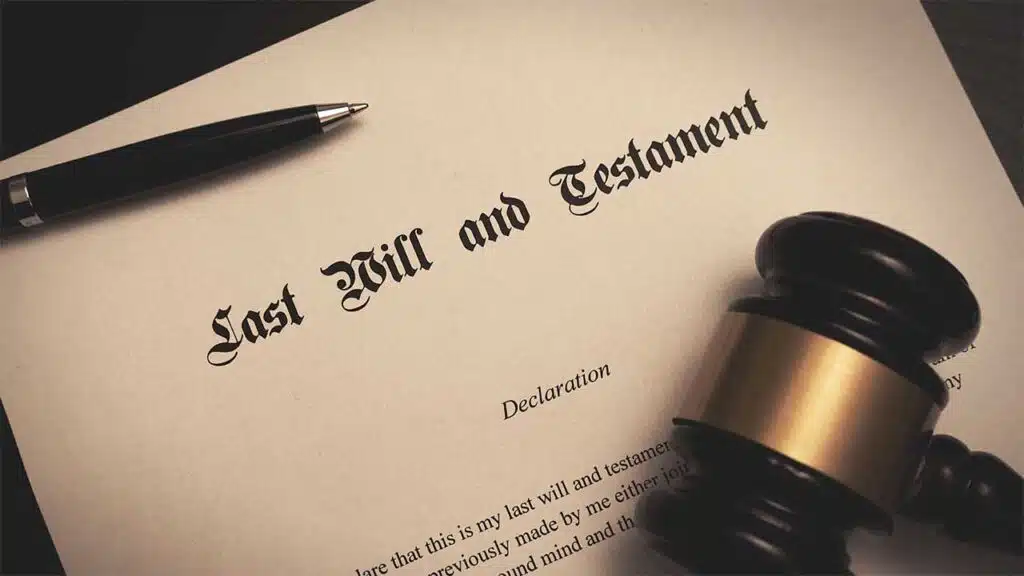Writing a will is one of the most important steps you can take to ensure that your assets, loved ones, and final wishes are handled in accordance with your desires after you pass away.
Despite its importance, many people delay writing a will or make significant mistakes that can lead to confusion, disputes, or even the invalidation of the will itself.
By avoiding common errors, you can ensure that your will is both legally sound and fully reflects your intentions.
In this article, we’ll explore 15 common mistakes people make when writing a will and provide detailed advice on how to avoid these pitfalls.
Whether you’re drafting a will for the first time or updating an existing one, this guide will help you navigate the process with confidence.
Mistake 1: Not Writing a Will at All
One of the biggest mistakes people make is simply not writing a will at all. When someone dies without a will, they are considered to have died “intestate.”
This means that the distribution of their assets will be handled according to state laws, rather than their personal wishes.
These laws vary by state but generally prioritize immediate family members, such as spouses and children. If no close relatives are found, the estate may even go to distant relatives or, in some cases, the state itself.
Without a will, you lose the ability to control who inherits your property, which can lead to unintended consequences.
For example, a partner you were not legally married to might not inherit anything, and your children might not receive equal shares of your assets.
Why People Avoid Writing Wills?
Many people avoid writing wills for various reasons. Some believe they don’t have enough assets to warrant a will, while others feel uncomfortable facing their own mortality.
Others procrastinate, thinking they’ll “get to it later.” However, life is unpredictable, and delaying the process can leave your loved ones facing legal challenges.
Overcoming this avoidance is crucial. Writing a will, regardless of the size of your estate, ensures that your final wishes are respected and that your loved ones avoid unnecessary legal headaches.
Mistake 2: Not Updating Your Will Regularly
Even if you have a will, it’s important to update it regularly. Major life changes—such as marriage, divorce, the birth of a child, or the death of a beneficiary—require you to revise your will to ensure that it accurately reflects your current situation.
Financial changes, like acquiring or selling significant assets, should also prompt an update.
For example, if you get divorced but forget to update your will, your ex-spouse could still inherit your assets.
Similarly, failing to add new beneficiaries, like children or grandchildren, may leave them without an inheritance.
The Risks of Having an Outdated Will
An outdated will can create confusion and conflict among your heirs. In some cases, it can result in unintended people receiving assets or even lead to legal challenges.
To avoid this, it’s a good practice to review your will every 3-5 years or after any major life event. Keeping your will updated ensures it always reflects your current intentions.
Mistake 3: Not Being Clear About Asset Distribution
One common mistake in will writing is using vague language when describing how assets should be distributed. Phrases like “my estate is to be divided equally” can be open to interpretation, especially if certain assets are more valuable than others or hold sentimental significance.
Without clear instructions, beneficiaries may disagree over how assets should be divided, leading to legal disputes and strained relationships.
How to Clearly Specify Asset Distribution?
To avoid ambiguity, be specific about who should receive each asset. Instead of saying “my estate should be divided,” list each item or group of assets and state exactly who should inherit them.
For example, “I leave my home at 123 Main Street to my daughter, Jane, and my car to my son, John.” If you want certain assets sold and the proceeds divided, state that clearly.
It’s also helpful to work with a legal professional to ensure that your language is legally sound and leaves no room for misinterpretation.
Mistake 4: Forgetting to Name a Guardian for Minor Children
If you have minor children, one of the most crucial parts of your will is naming a guardian who will take care of them in the event of your death.
Without a designated guardian, the court will step in to decide who will raise your children, and their decision may not align with your wishes.
This process can also cause significant emotional and financial stress for your children.
How to Choose the Right Guardian?
Choosing a guardian is a deeply personal decision. You should consider the potential guardian’s values, lifestyle, financial stability, and willingness to take on the responsibility.
It’s also essential to have a conversation with the person you plan to name as guardian to ensure they are comfortable with the role.
Instead of leaving it up to the courts, naming a guardian in your will ensures that someone you can trust will be responsible for looking after your children.
Mistake 5: Failing to Name an Executor or Naming the Wrong One
An executor is the person responsible for carrying out the instructions in your will.
Their duties include managing your assets, paying off any debts, and distributing the remaining assets to your beneficiaries.
Failing to name an executor can lead to delays in the administration of your estate, as the court will have to appoint someone to fill the role.
How to Choose the Right Executor?
When choosing an executor, it’s important to select someone who is organized, trustworthy, and capable of handling financial and legal matters.
The executor may need to manage relationships with beneficiaries, resolve conflicts, and ensure that your wishes are carried out accurately.
Naming someone who is overwhelmed by these responsibilities or who may be prone to disputes with other family members can cause complications.
If you don’t have a suitable family member or friend, you might consider naming a professional executor, such as an attorney or accountant, to handle the estate.
Mistake 6: Not Considering Taxes and Debts
Estate taxes, inheritance taxes, and capital gains taxes can significantly affect the value of the assets your beneficiaries receive. Many people fail to account for these taxes when writing their will, which can leave beneficiaries with a smaller inheritance than anticipated.
Addressing Debts in Your Will
Debts must be paid from your estate before any assets are distributed to beneficiaries. If you don’t plan for this in your will, it can create issues for your heirs.
For example, if you leave a house to a family member without accounting for an outstanding mortgage, that person may struggle to keep the property.
To avoid this, include a plan for paying off any debts, and be aware of how taxes will affect the assets you leave behind.
Mistake 7: Overlooking Digital Assets
Digital assets include everything from online banking accounts and social media profiles to cryptocurrencies and digital photos.
Many people overlook these assets when writing their will, but they can hold significant financial and sentimental value.
Why Digital Assets Should Be Included in a Will?
Without clear instructions in your will, your executor may struggle to access or manage your digital assets.
This can be especially challenging for assets like cryptocurrency, which require specific login information to access.
To ensure these assets are handled properly, include a list of digital assets and provide your executor with the necessary access information.
Mistake 8: Failing to Plan for Contingencies
Life is unpredictable, and it’s important to plan for various contingencies when writing a will.
For example, what happens if your primary beneficiary predeceases you? What if your executor is unable or unwilling to serve?
How to Include Contingency Plans in Your Will?
To address these issues, name alternate beneficiaries and backup executors in your will.
For example, you might state, “If my spouse predeceases me, I leave my estate to my children in equal shares.” Including contingency plans ensures that your will remains valid and your assets are distributed according to your wishes, even if the unexpected happens.
Mistake 9: Not Accounting for Beneficiary Designations on Financial Accounts
Many financial accounts, such as life insurance policies and retirement accounts, allow you to name beneficiaries directly on the account.
These designations take precedence over what’s written in your will, which means that if the two don’t align, your assets may be distributed differently than you intended.
How to Align Will with Beneficiary Designations?
To avoid conflicts, review your beneficiary designations and ensure they match the instructions in your will.
If you want your spouse to inherit your retirement account, make sure they are listed as the beneficiary on the account itself—not just in the will.
Regularly reviewing these designations will help prevent any discrepancies.
Mistake 10: Not Discussing Your Will with Loved Ones
Discussing your will with loved ones may feel uncomfortable, but it’s an important step in preventing disputes and ensuring that your wishes are understood.
Without this conversation, family members may be surprised or confused by the terms of your will, which can lead to disagreements and even legal challenges.
How to Have a Conversation About Your Will?
When discussing your will with loved ones, be clear about your intentions and the reasoning behind your decisions.
This can help set expectations and reduce the likelihood of conflict after you’re gone. It’s also a good idea to let key family members know where they can find your will and other important documents
Mistake 11: Using DIY Templates Without Legal Guidance
While DIY will templates may seem like a convenient and cost-effective option, they come with significant risks. These templates are often generic and may not account for specific state laws or complex situations. As a result, they may contain legal loopholes, outdated language, or missing provisions that could invalidate the will.
The Benefits of Professional Legal Assistance
Consulting an estate planning attorney ensures that your will is legally sound and tailored to your unique circumstances.
A lawyer can help you navigate state-specific laws, address any complicated issues (such as tax implications or blended families), and ensure that your will is properly executed.
Though it may require a financial investment upfront, professional guidance can save your loved ones from costly legal challenges down the road.
Mistake 12: Forgetting to Account for Personal Possessions
Personal possessions, such as jewelry, artwork, and family heirlooms, often hold significant sentimental value.
However, these items are frequently overlooked in wills, which can lead to disputes among family members after your death.
How to Address Personal Belongings in a Will?
To avoid conflicts, create a personal property memorandum that lists your valuable or sentimental items and specifies who should inherit them.
You can also use your will to state how personal possessions should be divided.
Being specific about these items can prevent misunderstandings and ensure that your loved ones receive the items that are most meaningful to them.
Mistake 13: Failing to Make Your Will Accessible
A will is useless if no one can find it. Unfortunately, many people hide their wills in places that are difficult to access (such as safes without keys) or fail to inform anyone of its location.
If your will cannot be found, your estate may be handled as though you never wrote one, leading to intestacy.
How to Ensure Your Will Is Accessible?
Make sure your will is stored in a safe, accessible place.
You can keep a copy with your attorney or in a secure but accessible location, such as a safe deposit box.
It’s also important to inform your executor and close family members where your will is located so they can access it when needed.
Mistake 14: Forgetting About Pets
Pets are often treated like family, but legally, they are considered property.
If you don’t include provisions for their care in your will, your pets may end up without a designated caregiver.
How to Include Pets in Your Will?
In your will, you can name a guardian for your pets and set aside funds to cover their care.
You may also want to consider establishing a pet trust, which ensures that the caregiver has the resources they need to look after your pets according to your wishes.
Mistake 15: Not Having Your Will Properly Witnessed and Signed
Each state has specific legal requirements for witnessing and signing a will. If these formalities are not followed correctly, your will may be declared invalid. For example, most states require two witnesses who are not beneficiaries of the will to be present when you sign the document.
How to Ensure Your Will Is Legally Valid?
To ensure your will is valid, follow your state’s legal requirements for witnessing and signing.
You may also want to consult a lawyer to ensure that all necessary steps are completed correctly.
Taking these precautions will help ensure that your will cannot be easily contested.
Conclusion
Writing a will is a vital part of planning for the future, but it’s easy to make mistakes that can undermine your wishes.
From failing to update your will regularly to overlooking the importance of digital assets, these common mistakes can lead to unnecessary complications and disputes after your death.
By avoiding the 15 mistakes outlined in this article, you can ensure that your will is clear, legally sound, and accurately reflects your wishes.
Remember, consulting a legal professional can provide invaluable guidance and help you navigate the complexities of estate planning.
Taking the time to write and update your will will give you and your loved ones peace of mind, knowing that your final wishes will be respected.








































